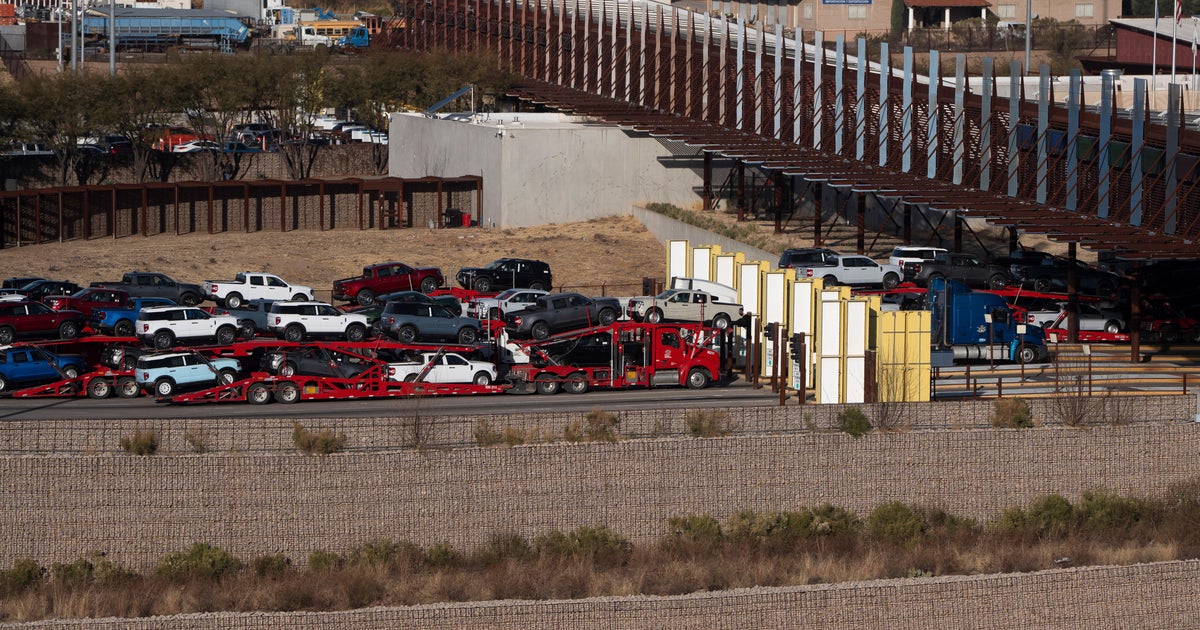
Trump Tariffs on Canada and Mexico Could Increase US Car Prices
In the ever-evolving landscape of global trade, tariffs have become a potent instrument used by countries to enforce national interests. The recent assertion from former President Donald Trump regarding tariffs on Canada and Mexico has sparked significant conversation, with potential impacts on the automotive industry being a primary concern.
The Background of US-Mexico-Canada Trade Relations
Traditionally, the United States, Canada, and Mexico have shared incredibly strong trade ties, primarily shaped by the North American Free Trade Agreement (NAFTA). This agreement, later revised and renamed the United States-Mexico-Canada Agreement (USMCA), facilitated the flow of goods and services, playing a crucial role in the economies of the triad.
The close proximity and reduced trade barriers between these nations have fostered a thriving automotive industry. Parts are often manufactured in different countries and then assembled to create finished vehicles, enhancing efficiency and cost-effectiveness.
Introduction of Tariffs and Potential Impact
However, the imposition of tariffs under Trump’s administration added uncertainty to this thriving ecosystem. The suggested tariffs on automotive imports from Canada and Mexico could potentially disrupt the integrated supply chains on which automakers have historically relied.
As tariffs typically have the effect of driving up costs, any additional charges would likely be passed down to consumers, ultimately affecting the price of vehicles in the United States. This could make cars more expensive, possibly impacting sales and the broader economy.
Effect on Major Automakers
Ford's Stance on Tariffs
Among the automotive giants, Ford has expressed its concerns regarding the impact of tariffs. Ford argues that these tariffs would increase input costs, constraining their ability to offer competitively priced vehicles. This concern stems from the interconnectedness of Ford's operations across North America, where parts and vehicles routinely cross borders tariff-free.
General Impact Across Automakers
It's not just Ford; the entire sector is apprehensive. Major automakers often rely on components manufactured in different regions due to the availability of specialized parts and advanced manufacturing processes. The tariffs would complicate these established supply lines, forcing companies to rethink their strategies or absorb higher production costs.
The Consumer Price Conundrum
As automakers grapple with increased production costs, the burden could shift to consumers. If implemented, tariffs might cause retail prices to surge. For example, a car that once cost $30,000 could see its price rise significantly, even by several thousand dollars, depending on the tariff level.
Beyond affecting new car sales, this possible increase could also impact the used car market. With new cars becoming more expensive, buyers might turn to pre-owned vehicles, driving up demand and prices in that segment as well.
Economic Ramifications
Influence on the US Economy
A significant hike in car prices could have wide-ranging effects on the US economy. The automotive industry is a substantial economic driver, contributing massively to GDP, employment, and trade balances. If the sector contracts because of reduced affordability, it could ripple into related industries.
The impact on employment cannot be understated. The automotive industry supports millions of jobs directly through manufacturing and indirectly through dealerships, suppliers, and service providers. Tariffs could threaten this web of employment, potentially leading to job cuts if consumer demand wanes.
Regional Economic Effects
Regions heavily reliant on the automotive industry could face heightened economic challenges. States such as Michigan, Ohio, and Tennessee, where automotive manufacturing forms an economic backbone, may feel a sharper impact, affecting livelihoods and regional economies.
Navigating Potential Trade Wars
The possibility of escalating into more widespread trade wars remains a concern whenever tariffs are introduced. Tit-for-tat retaliatory tariffs could worsen the situation for the automotive sector, where many companies operate on thin margins. Other sectors may also bear collateral damage, further exacerbating economic uncertainties.
Calls for Diplomatic Negotiation
The automotive industry has been vocal in its calls for dialogue and negotiation to avoid the detrimental effects of tariffs. They argue that building constructive trade relationships rather than adversarial methods will be beneficial to all parties involved.
Diplomatic negotiations could foster better trade agreements, ensuring economic stability while maintaining manufacturing efficiency across North America. Automakers hope for an approach that will safeguard their interests and those of their consumers.
Conclusion: Weighing the Costs and Benefits
In summation, while tariffs are designed to protect domestic industries by encouraging local production, the interconnected nature of modern manufacturing complicates this narrative. In the case of the proposed tariffs on Canada and Mexico, the automotive industry finds itself in a delicate position. The potential for increased car prices looms over consumers and manufacturers alike.
Balancing national economic interests with the implications on specific sectors requires a nuanced approach. As stakeholders across the board call for measured policies, the future of the US automotive industry hangs in the balance, awaiting decisions that could shape its trajectory for years to come.

